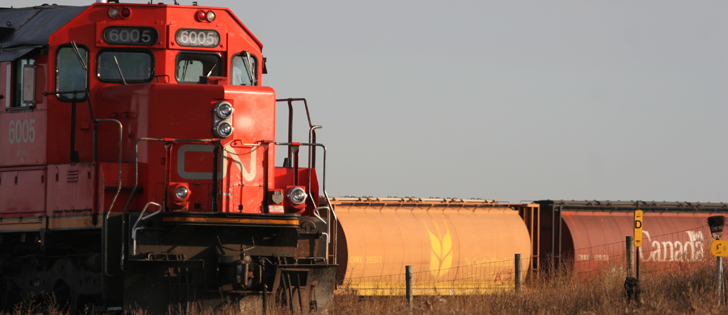Canada’s pulse and special crops industries said Wednesday they are assessing the potential impact of Bill C-49, proposed federal legislation that’s aimed at improving Canada’s grain transportation system for shippers.
There’s room for optimism in the bill, officials from Pulse Canada said.
But it’s too early to unfurl the “mission accomplished” banner just yet.
“There’s a lot of stuff to go through here …,” said Pulse Canada’s chief operating officer Greg Cherewyk.
“They’ve got the right themes in what they’ve introduced, without question….”
Read Also

Feds propose overhaul of chronic wasting disease control program
Chronic Wasting disease control program getting updated by Canadian Food Inspection Agency with feedback encouraged from producers.
“Now it’s a matter of diving into the detail under each one of the headings and really doing a thorough assessment of them to understand whether or not we think the tools they’ve chosen will produce (the preferred) outcomes.”
“We wouldn’t unfurl the mission accomplished banner until we start to see measures that reflect the types of improvements that we would expect to see.”
Bill C-49, also known as an Transportation Modernization Act, was unveiled May 16 by federal Transport Minister Marc Garneau.
It’s the latest component in an ongoing effort to create a more equitable, transparent and efficient rail system for grain shippers.
Pulse Canada has played a key role in pushing for transportation changes that benefit producers, Cherewyk said.
The organization was engaged in the file during the so-called Emerson Review process — a process that led to a review of the Canadian Transportation Act (CTA) headed by former Conservative cabinet minister David Emerson.
The review also led efforts to establish the Ag Transport Coalition (ATC), a coalition of shipping groups that depends on rail to get its goods to market.
The ATC monitors rail industry performance and publishes weekly and daily reports on supply chain movement.
“This has been quite a long process and we’ve got quite a team built around the transportation file here,” Cherewyk said.
“We’ll measure the effectiveness of the … legislation by determining whether or not it delivers results: Does it produce the capacity that meets the needs of our members on a timely basis and does it produce consistent reliable service?” Cherewyk said.
At first glance, the Bill C-49 appears to touch on many of the priority issues put forward by the pulse industry:
• It would support the use of reciprocal financial penalties in shipping agreements.
• It would replace extended rail interswitching provisions in place with a new long-haul interswitching provision.
• It would give clearer direction for the Canadian Transportation Agency on how to assess and respond to shipper complaints.
It would also maintain the maximum revenue entitlements or MRE, a measure that limits the amount of revenue a railway can generate from shipping a tonne of regulated grain over any given distance.
As it currently reads, Bill C-49 would remove containerized crops from MRE calculations.
Pulse Canada officials said it is too early to assess how the removal of containerized crops from the MRE would affect the prairie pulse industry.
Much of the containerized grain that is shipped out of the prairies is shipped on so-called unregulated rail corridors that are not subject to the MRE.
The vast majority of pulses and special crops that are exported in containers are shipped as bulk commodities to the West Coast, and are transloaded into containers at Vancouver.
“As an industry we will look closely at this change to the MRE to understand both what the government intends as an outcome and the impact on our industry,” said Gordon Bacon, chief executive of Pulse Canada and the CSCA.
“The industry expectation is that change must lead to improved containerized service, capacity and performance at competitive rates. Having clearly defined performance measures in place will be key to determining if the removal of container traffic from the MRE has achieved the intended results.”
The details of long-haul interswitching provisions in Bill C-49 are largely unknown at this point, added Cherewyk.
The legislative process will involve additional discussions and will allow for amendments if necessary.
“There is a lot to assess in this bill and our team will do a thorough analysis of the details and will be prepared to participate in the parliamentary process over the coming months,” said Pulse Canada chair Lee Moats in a May 16 news release.
“In the end though, it’s about results. The true measure of success is the extent to which these provisions deliver measurable improvements in performance.”
“Our sector has invested heavily in increasing the transparency of the system through the Ag Transport Coalition,” he added.
“We’re very much ready to contribute to the development of a broader system that meets the needs of individual participants, industries and Governments across Canada.”
















